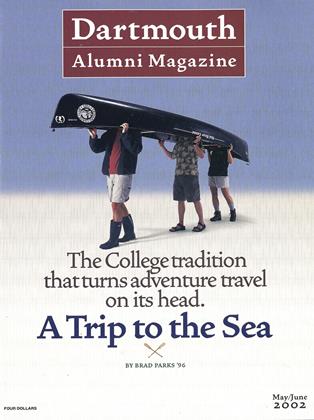Edward Chalfant '42 chronicles the life of Henry Adams in the final volume of his trilogy, Improvement of the World: The Biography of Henry Adams, His Last Life 1891-1918 (Archon Books).
George Woodwell '50, director of the Woods Hole Research Center in Massachusetts, assesses the current status of the worlds forests and calls for a redefinition of "the public interest" and a redesign of land-use planning in Forests in a Full World (Yale University Press).
George Liebmann '60 discusses the work of six activists of the past two centuries-Octavia Hill, William GlyhJoanes, Mary Richmond, George William Brown, Mary Parker Follett and Bryan Keith-Lues—in Six Lost Leaders (Lexington Books),
Bill Piper'61 offers up psychological suspense in his novella collection So TrustMe: Four Decades of Love and Deceit (Creative Arts Book).
Susan WeiNer '86 examines the changing representations of teenage girls in France in the wake of the Nazi occupation and in the face of increasing Cold War paranoia in Enfants Terribles:Youth and Femininity in the MassMedia in France, 1945-1968 (Johns Hopkins University Press).
John Merrow '63, host of The Merrow Report, brings to bear his 25 years covering education for NPR and PBS in Choosing Excellence:' Good Enough' SchoolsAre Not Good Enough (Scarecrow Press).
Will Wilkoff '66, pediatrician and the author of Coping With a Picky Eater (Fireside),: tackles that other potential nightmare—the kid who won't sleepin his new book Is My Child Overtired?The Sleep Solution for Raising Happier,Healthier Children (Fireside).
Dinesh D'Souza '83, a fellow at Stanford's Hoover Institution and an immigrant who grew up in Bombay, examines foreign and domestic critiques of America in What's So Great About Amenca (Regnery Publishing).
 View Full Issue
View Full Issue
More From This Issue
-
 Cover Story
Cover StoryDifferent Strokes
May | June 2002 By Brad Parks ’96 -
 Sports
SportsThe Tao of Cha
May | June 2002 By ROBERT SULLIVAN ’75 -
 Personal History
Personal HistoryOut of Bounds
May | June 2002 By Sarah Lang Sponheim ’79 -
 Article
ArticleSeen & Heard
May | June 2002 -
 Article
ArticleFalse Sense of Security
May | June 2002 By Professor Allan C. Stam -
 Article
ArticleThe Gift of Education
May | June 2002 By President James Wright
Books
-
 Books
BooksAlumni Articles
MAY 1969 -
 Books
BooksALL THE BEST IN JAPAN.
June 1958 By DONALD BARTLETT '24 -
 Books
BooksBYSTANDER
MAY 1930 By E. P. K. -
 Books
BooksEND OF ROAMING
November, 1930 By Herbert F. West -
 Books
BooksLABYRINTH OF SILENCE.
OCTOBER 1970 By John Hurd ’21 -
 Books
BooksNEO-CONFUCIANISM, ETC.: ESSAYS BY WING-TSIT CHAN.
MARCH 1970 By SHU-HSIEN LIU

